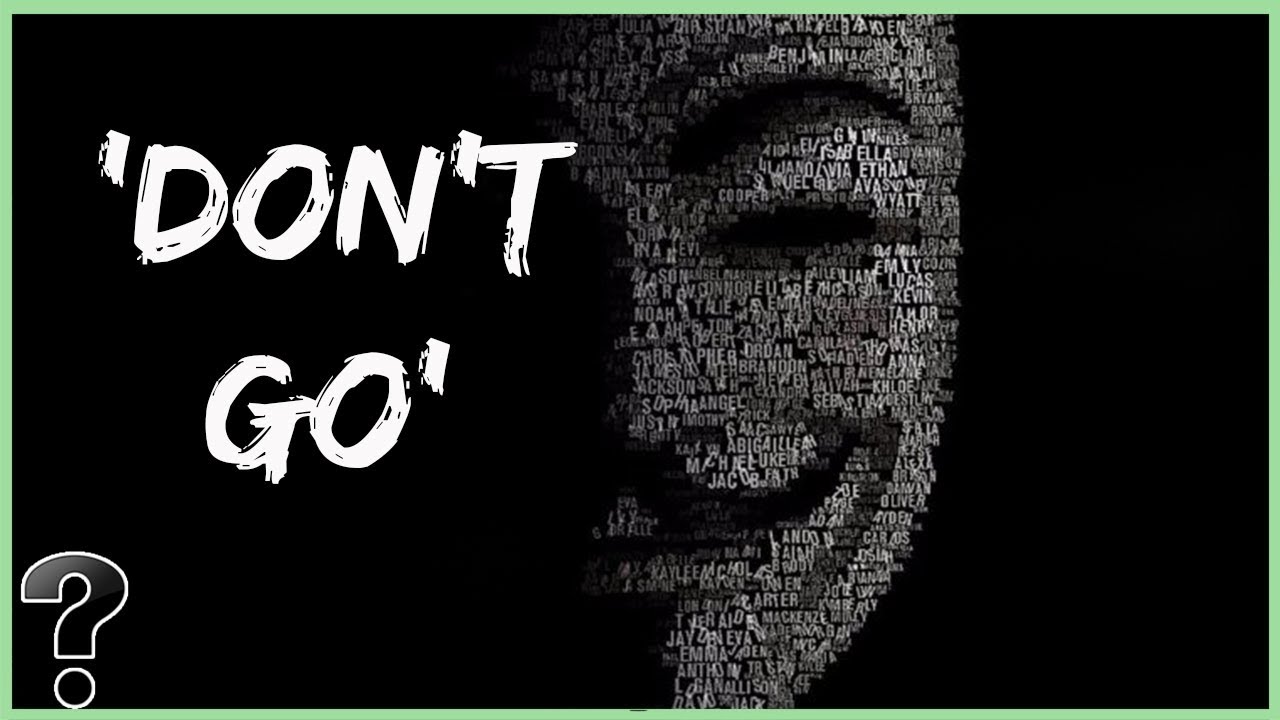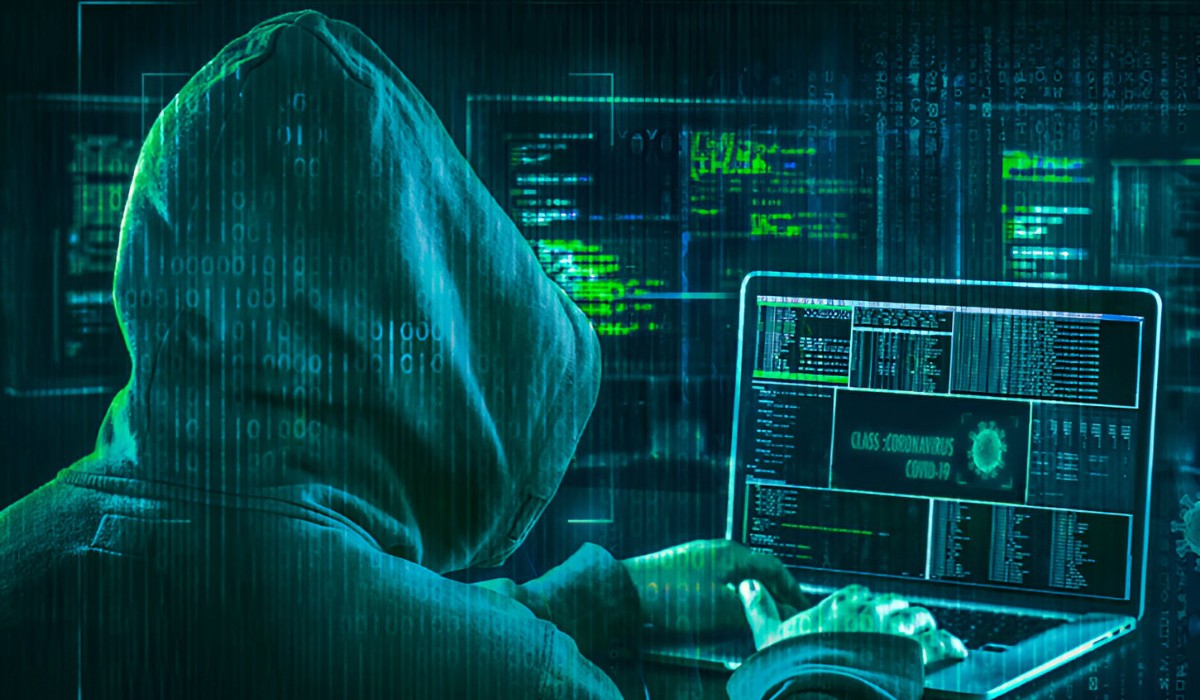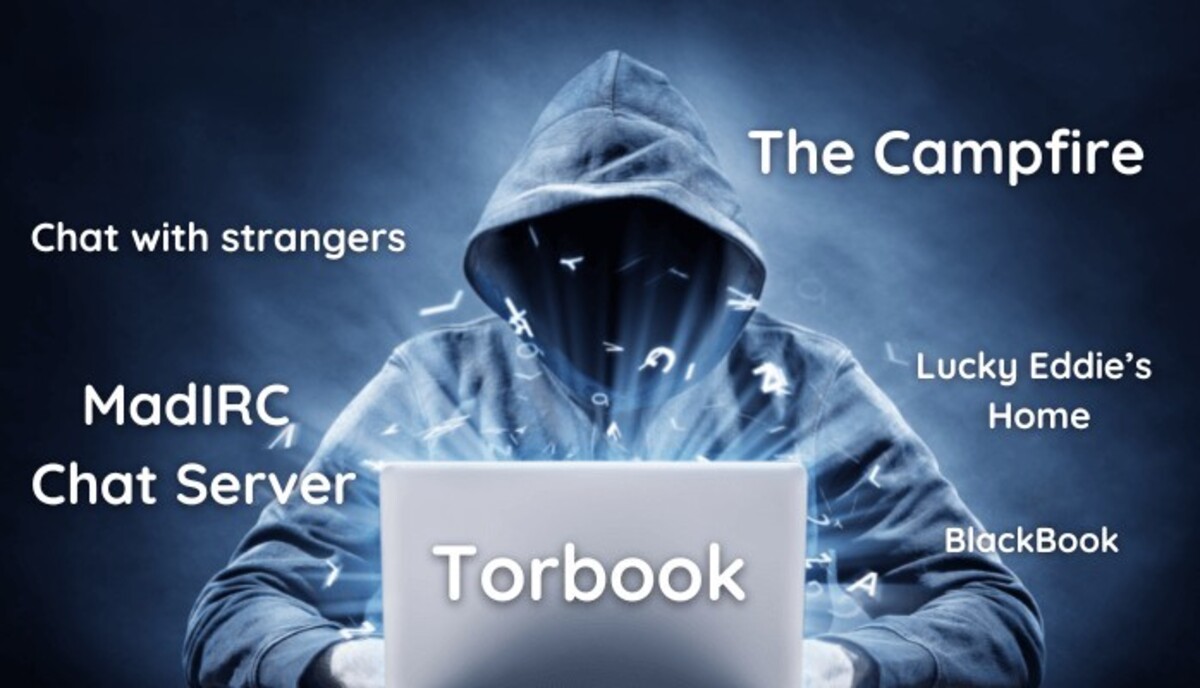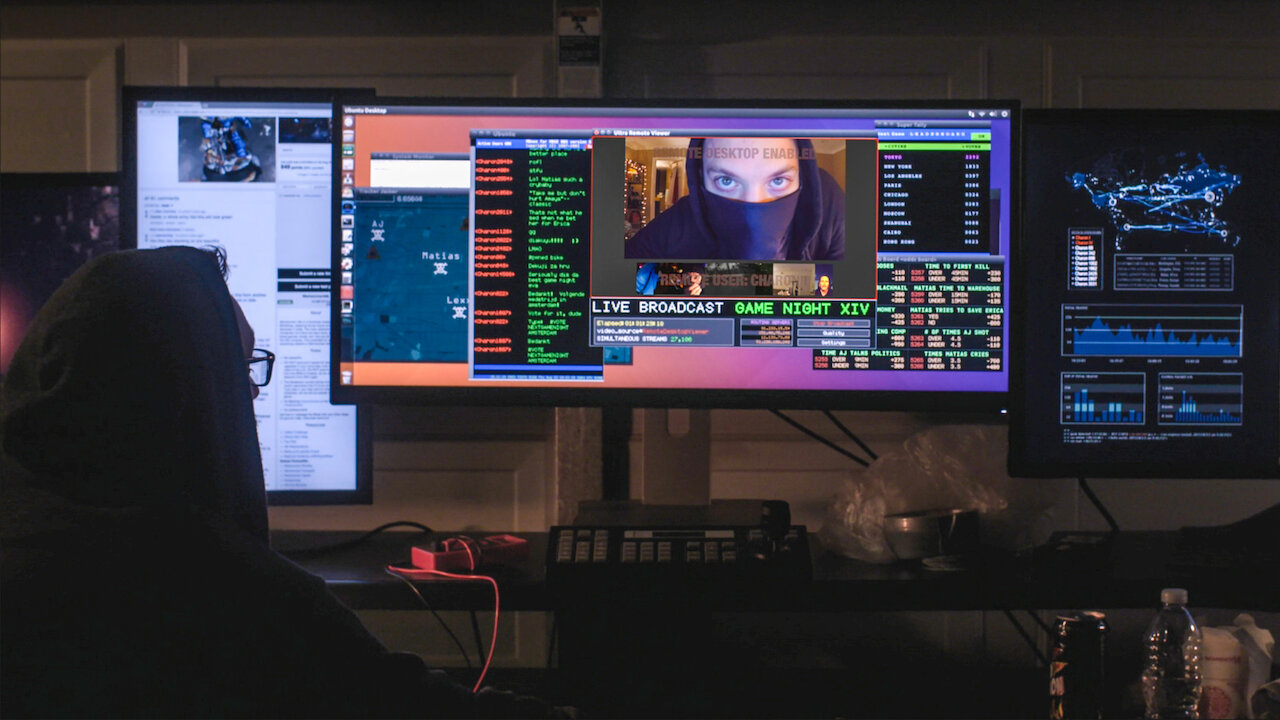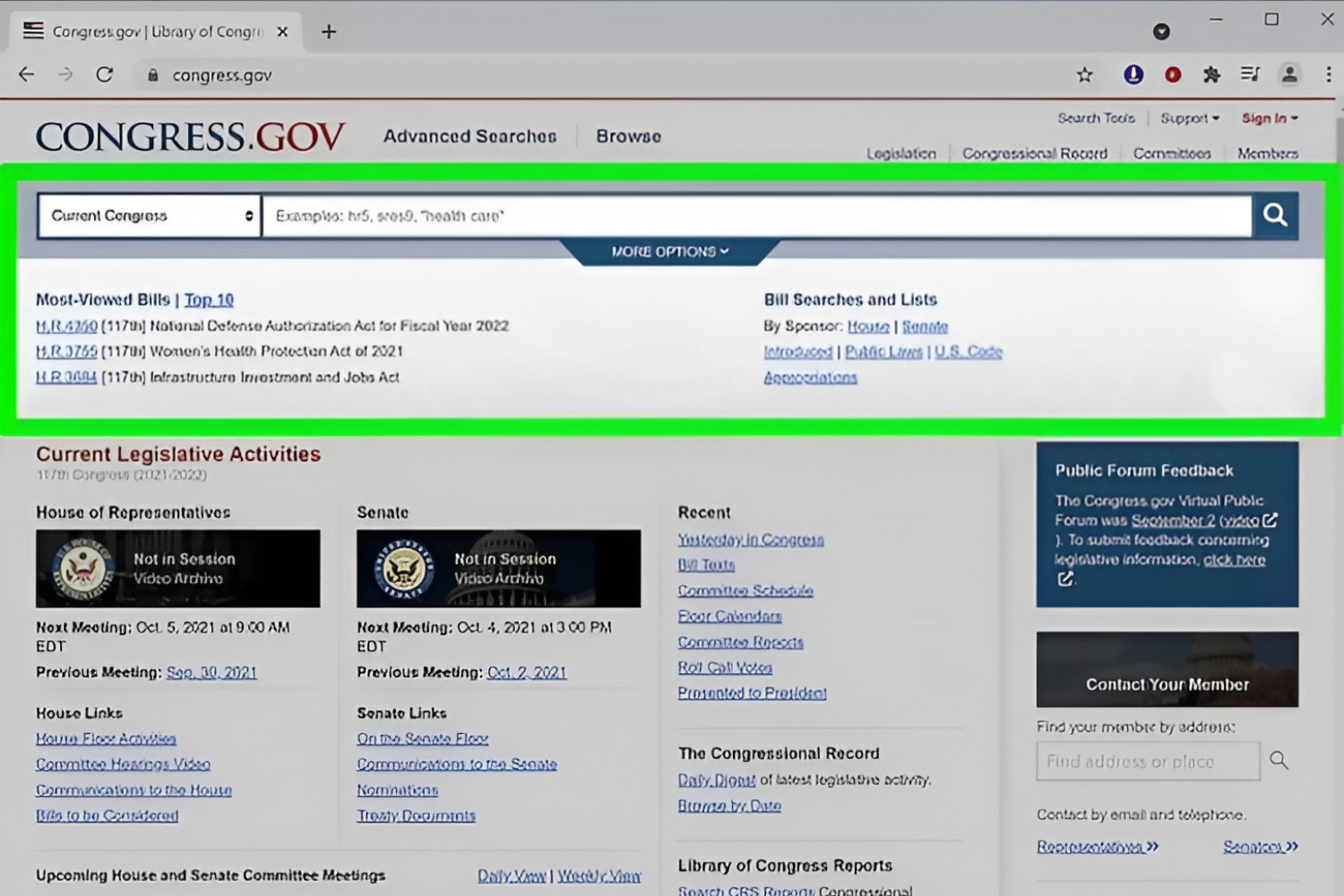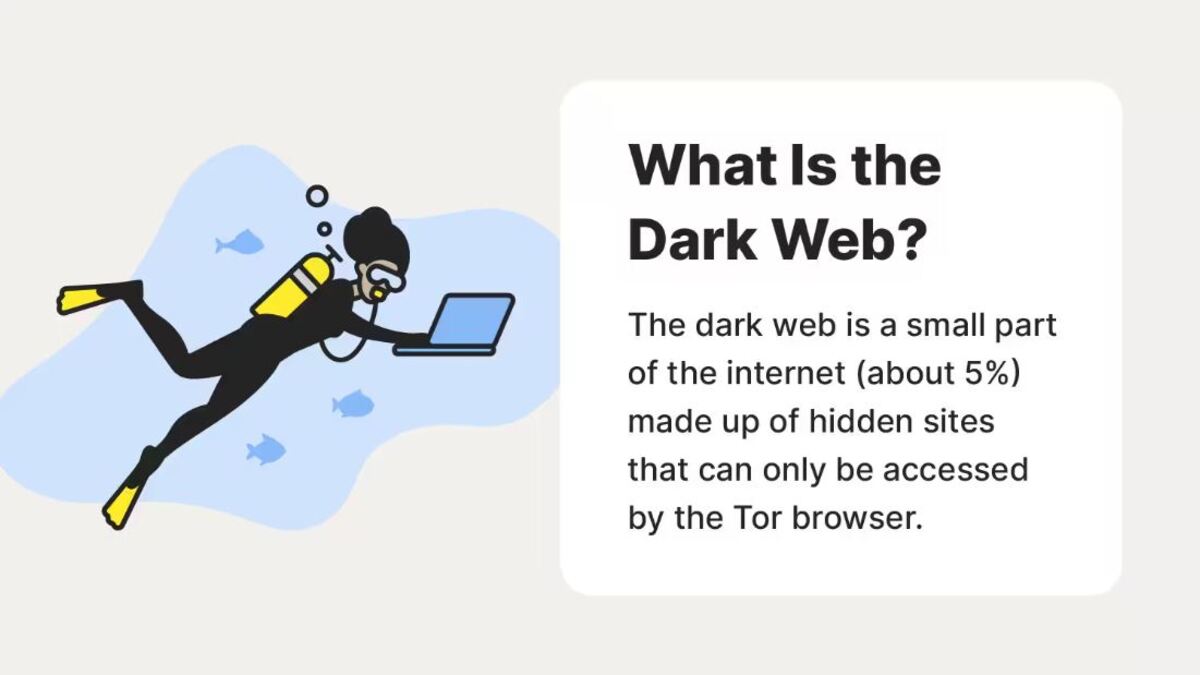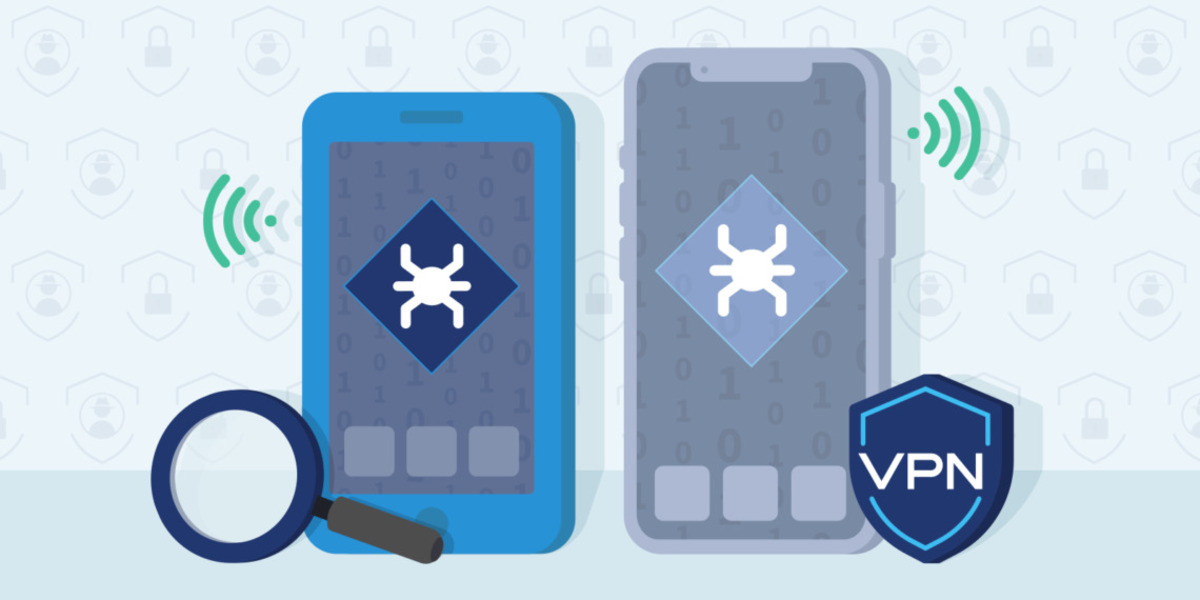Introduction
The Dark Web has gained notorious notoriety as an underground platform for illegal activities. It has become a subject of fascination and fear for many, as it provides anonymity and secrecy to its users. But what exactly is the Dark Web? The Dark Web refers to a part of the internet that is not indexed by traditional search engines, making it inaccessible to the average user. It operates on encrypted networks and requires specific software, such as Tor, to access.
While not everything on the Dark Web is illegal, it has gained a reputation for being a hub for illicit activities. From drug trafficking to human trafficking, the Dark Web is a breeding ground for criminal enterprises. Its anonymity allows users to engage in nefarious activities without fear of getting caught. In this article, we will explore some of the dangerous aspects of the Dark Web and shed light on the illegal activities that take place within its virtual walls.
Please note that the purpose of this article is to provide information and raise awareness about the risks associated with the Dark Web. It is essential to stay vigilant and exercise caution online to protect ourselves and our personal information.
What is the Dark Web?
The Dark Web is a hidden part of the internet that cannot be accessed using traditional search engines. To access the Dark Web, users rely on specialized software like Tor (The Onion Router) that enables anonymous browsing. This anonymity is achieved through a complex system of encrypted networks and relays, making it nearly impossible to trace the identity or location of Dark Web users.
Unlike the surface web, which is accessible to anyone with an internet connection, the Dark Web is intentionally hidden and requires specific knowledge and tools to navigate. Websites on the Dark Web end with the .onion extension, indicating that they are part of this clandestine network.
The Dark Web serves as a platform for a range of activities, both legal and illegal. While some users access it for legitimate reasons, such as protecting their privacy or bypassing censorship, it has become notorious for hosting various illegal activities. It serves as a marketplace for illicit goods and services, providing a haven for sellers and buyers seeking anonymity.
It’s important to note that the Dark Web should not be confused with the deep web. The deep web refers to the portion of the internet that is not indexed by search engines, including private databases, password-protected sites, and online platforms that require login credentials. The Dark Web, on the other hand, specifically refers to the encrypted and secretive part of the internet where illegal activities often take place.
The Dark Web operates as a parallel universe to the surface web, housing hidden forums, marketplaces, and communication platforms. It has become a breeding ground for cybercriminals, terrorist organizations, and other malicious entities who take advantage of its anonymity to perpetrate crimes and conduct illegal business transactions.
Illegal activities on the Dark Web
The Dark Web has gained notoriety for being a hotbed of illegal activities. Its anonymous and encrypted nature makes it an attractive platform for criminals to engage in various illicit practices. While not all activities on the Dark Web are illegal, it is essential to acknowledge the risks associated with this hidden network.
One prevalent illegal activity on the Dark Web is the sale and distribution of drugs. Users can easily find marketplaces dedicated to the buying and selling of narcotics, including opioids, stimulants, and even prescription medications. The anonymity provided by the Dark Web allows individuals to purchase drugs without fear of being caught by law enforcement.
Counterfeit goods are also widely available on the Dark Web. From fake luxury designer items to counterfeit passports and identification documents, buyers can find a plethora of products that are manufactured with the intention of deceit. These counterfeit goods not only deceive unsuspecting consumers but also harm legitimate businesses.
Hacking and cybercrime have flourished on the Dark Web as well. Services such as DDoS attacks, hacking tools, and stolen data are readily available for those seeking to exploit and disrupt computer systems or engage in identity theft. The anonymity provided by the Dark Web makes it an attractive space for cybercriminals to trade and collaborate on their nefarious activities.
Human trafficking is another grave issue that finds a home on the Dark Web. Criminal networks use the anonymity and encrypted communication channels of the Dark Web to facilitate the sale and transportation of human beings for forced labor, sexual exploitation, and other unlawful purposes. The Dark Web provides a platform where these illegal transactions can take place without detection.
The sale of illegal firearms and weapons is also a major concern on the Dark Web. Buyers and sellers can connect on underground marketplaces to trade in prohibited weapons, including firearms, explosives, and even military-grade equipment. These transactions pose significant risks to public safety and contribute to an increase in illegal weapons distribution.
Money laundering and fraud are prevalent on the Dark Web as well. Criminals can easily find services and tools to facilitate illicit financial activities. From laundering money obtained through illegal means to engaging in scams and financial fraud, the Dark Web offers a platform where these activities can be conducted with minimal risk of detection.
Exploitation of personal information is another serious issue on the Dark Web. Stolen databases, credit card information, social security numbers, and other sensitive data can be bought and sold, exposing individuals to identity theft and financial loss. This thriving market for personal information fuels various cybercrimes and contributes to the growing problem of online fraud.
Drugs and Counterfeit Goods
One of the most prevalent illegal activities on the Dark Web is the sale and distribution of drugs. The anonymity and encryption provided by the Dark Web make it a haven for drug dealers and buyers alike. On Dark Web marketplaces, individuals can easily find a wide range of narcotics, including opioids, stimulants, and even prescription medications.
The Dark Web drug trade operates through anonymous marketplaces that use cryptocurrencies as a means of payment, adding an additional layer of secrecy. Buyers can browse through various drug listings, read reviews from other users, and place orders discreetly, all from the comfort of their own homes. This ease of access and the perception of a lower risk of getting caught has contributed to the exponential growth of the Dark Web drug trade.
In addition to drugs, the Dark Web is also a hub for counterfeit goods. Users can find marketplaces dedicated to the sale of fake luxury designer items, replicas of popular consumer electronics, counterfeit identification documents, and even counterfeit prescription medications. These counterfeit goods are often manufactured with the purpose of deceiving consumers by mimicking the appearance and branding of genuine products. This not only defrauds unsuspecting buyers but also harms legitimate businesses.
The sale of counterfeit goods on the Dark Web thrives due to the anonymity it provides. Sellers can maintain their operational security, making it difficult for law enforcement agencies to track them down. Additionally, buyers benefit from the lower prices offered for counterfeit goods compared to their genuine counterparts, further fueling the demand.
While the availability of drugs and counterfeit goods on the Dark Web is concerning, it is important to understand that the risks associated with accessing and engaging in these illegal activities are significant. Law enforcement agencies closely monitor the Dark Web, and individuals involved in these illicit transactions may face severe legal consequences if caught. Furthermore, the purchase of counterfeit goods not only supports criminal enterprises but also poses potential health and safety hazards to consumers.
It is crucial for individuals to be aware of the dangers of participating in the Dark Web drug trade or purchasing counterfeit goods. The best course of action is to refrain from engaging in these illegal activities and to opt for legitimate and legal means of obtaining products and services.
Hacking and Cybercrime
The Dark Web has become a thriving marketplace for hackers and cybercriminals, offering a wide range of tools and services designed to exploit computer systems and steal sensitive information. With its encrypted communications and anonymous transactions, the Dark Web provides a fertile environment for cybercriminals to collaborate and carry out their illicit activities.
On the Dark Web, services such as distributed denial-of-service (DDoS) attacks, malware, hacking tools, and stolen data are readily available for purchase. These tools empower cybercriminals to launch devastating attacks on computer networks, compromise websites, and steal personal information for financial gain.
The availability of hacking services on the Dark Web allows even individuals without significant technical skills to engage in cybercrime. Ransomware-as-a-service is a notable example, where perpetrators can rent or purchase pre-made ransomware payloads to extort money from victims by encrypting their files and demanding a payment in cryptocurrencies.
Furthermore, the Dark Web provides a platform for trading stolen data, such as login credentials, credit card information, and social security numbers. This stolen data can be used for a multitude of illegal activities, including identity theft, financial fraud, and unauthorized access to sensitive systems.
The allure of the Dark Web for hackers and cybercriminals lies in the anonymity it provides. By concealing their identities and activities behind layers of encryption, cybercriminals can minimize the risk of detection and prosecution. This makes it challenging for law enforcement agencies to identify and apprehend those responsible for cybercrimes committed on the Dark Web.
However, it is important to note that law enforcement agencies and cybersecurity firms are actively working to combat cybercrime on the Dark Web. They employ various techniques, such as infiltration and monitoring, to identify and apprehend individuals involved in illegal online activities. Nevertheless, the constantly evolving nature of the Dark Web presents challenges in mitigating cyber threats effectively.
To protect themselves from the risks posed by hacking and cybercrime on the Dark Web, individuals must prioritize cybersecurity. This includes regularly updating software and systems, using strong and unique passwords, being cautious of suspicious emails or messages, and ensuring the use of reputable antivirus and cybersecurity software. Additionally, it is crucial to stay informed about the latest threats and to report any suspicious activities to law enforcement authorities.
Human Trafficking
Human trafficking is a grave issue that finds a disturbing presence on the Dark Web. Criminal networks exploit the anonymity and encrypted communication channels offered by the Dark Web to facilitate the sale and transportation of human beings for forced labor, sexual exploitation, and other unlawful purposes.
The Dark Web provides a platform where these illegal transactions can take place without detection. Underground marketplaces dedicated to human trafficking exist, where individuals can be bought and sold like commodities with minimal risk of law enforcement intervention. These marketplaces enable traffickers to connect with potential buyers and organize the logistics of transporting victims across international borders.
The anonymity of the Dark Web adds an additional layer of complexity to combating human trafficking. It is challenging for law enforcement agencies to track down and bring to justice those involved in these criminal operations.
The victims of human trafficking, often vulnerable individuals who are coerced or forced into slavery-like conditions, suffer unimaginable abuse and exploitation. Their lives are shattered as they become victims of a global criminal enterprise fueled by the lack of visibility and oversight provided by the Dark Web.
It is crucial for individuals to be aware of the issue of human trafficking and to support organizations and initiatives that work tirelessly to combat it. Governments and enforcement agencies are actively working to disrupt human trafficking networks on the Dark Web. International cooperation, intelligence sharing, and technology advancements are key to combating this heinous crime and rescuing its victims.
To play a part in the fight against human trafficking, it is important to familiarize oneself with the signs of trafficking and to report any suspicious activities to the proper authorities. Additionally, supporting organizations that aid victims of human trafficking and raise awareness about the issue is an effective way for individuals to contribute to combating this modern-day slavery.
Weapon Sales and Illegal Firearms
The Dark Web has become a concerning marketplace for the sale and trade of illegal firearms and weapons. Criminals and individuals seeking to acquire prohibited weapons can utilize the anonymity and encrypted channels provided by the Dark Web to engage in these illicit activities.
On the Dark Web, secretive underground marketplaces exist where buyers and sellers can connect to conduct transactions involving firearms, explosives, and even military-grade equipment. These marketplaces operate globally, enabling individuals from different countries to engage in the illegal arms trade.
The availability of illegal firearms on the Dark Web poses significant risks to public safety. These weapons can end up in the hands of individuals with malicious intent, contributing to the overall increase in gun violence and crime rates. Additionally, the anonymity provided by the Dark Web makes it difficult for law enforcement agencies to track down and apprehend those involved in these illegal arms dealings.
To circumvent legal restrictions, some individuals may attempt to purchase firearms and weapons through the Dark Web. This includes individuals living in countries with strict gun laws or individuals prohibited from legally owning firearms due to criminal records or mental health issues. The Dark Web provides a means for these individuals to acquire these weapons without background checks or legal documentation.
Law enforcement agencies are aware of the rampant illegal arms trade on the Dark Web and are dedicated to dismantling these networks. They conduct investigations, monitor online activities, and work in collaboration with international partners to combat the illegal arms trade.
In order to address the issue of illegal firearms on the Dark Web, it is important to have stricter regulations on the sale and ownership of firearms. Additionally, enhanced collaboration between law enforcement agencies and intelligence networks is crucial to identify and apprehend those involved in the illegal arms trade.
Individuals can contribute by being vigilant and reporting any suspicious online activities related to illegal weapons. They can also support gun control advocacy groups and initiatives that aim to reduce gun violence and promote responsible firearm ownership. By working together, society can help combat the illegal arms trade and ensure the safety of communities worldwide.
Money Laundering and Fraud
The Dark Web has emerged as a hub for money laundering and various forms of fraud. Criminals take advantage of the anonymity and encryption provided by the Dark Web to engage in illegal financial activities, further perpetuating illicit schemes and undermining the integrity of financial systems.
Money laundering, the process of making illegally obtained funds appear legitimate, thrives on the Dark Web. Criminals can find services and tools that facilitate the transfer and conversion of illicit funds, allowing them to hide the true origins of the money. The Dark Web provides a platform where money launderers can distribute their illicit wealth across numerous accounts, making it difficult for law enforcement agencies to trace and recover the funds.
In addition to money laundering, the Dark Web is a hotbed for various types of fraud. Cybercriminals offer services such as identity theft, credit card fraud, and the sale of stolen financial data. These activities contribute to the substantial financial losses experienced by individuals, businesses, and financial institutions worldwide.
The availability of such services on the Dark Web allows individuals with limited technical skills to engage in fraudulent activities. Fraud-as-a-service has become a booming industry, offering pre-made tools and techniques for carrying out scams and financial fraud. These services further contribute to the proliferation of fraudulent activities on the Dark Web.
Law enforcement agencies are well aware of the money laundering and fraud networks operating on the Dark Web. They work tirelessly to disrupt these criminal operations and bring perpetrators to justice. However, the anonymous nature of the Dark Web poses challenges in identifying and prosecuting those involved in illegal financial activities.
To protect oneself from the risks associated with money laundering and fraud on the Dark Web, individuals should remain vigilant. This includes being cautious of suspicious online offers, safeguarding personal information, and regularly monitoring financial accounts for any unusual activity. Staying informed about the latest fraud schemes and reporting any suspected illegal activities to law enforcement authorities is crucial in the fight against financial crime.
Furthermore, governments and financial institutions must continue to strengthen regulations and implement effective measures to detect and prevent money laundering and fraud. Collaborative efforts between international enforcement agencies, intelligence agencies, and financial institutions are essential in combating these illicit activities on the Dark Web and ensuring the integrity of the global financial system.
Exploitation of Personal Information
The Dark Web has become a thriving marketplace for the exploitation and trade of personal information. Stolen databases, credit card information, social security numbers, and other sensitive data are readily available for purchase. This illicit trade contributes to the growing problem of identity theft, financial fraud, and other cybercrimes.
Cybercriminals take advantage of the anonymity and encryption provided by the Dark Web to carry out their nefarious activities. They infiltrate databases, exploit vulnerabilities in online platforms, and use various hacking techniques to steal personal information. This stolen data is then sold to the highest bidder on underground marketplaces on the Dark Web.
The consequences of having personal information exposed and traded on the Dark Web can be financially devastating and emotionally distressing for individuals. Victims of identity theft may face ruined credit, fraudulent charges, and the painstaking process of restoring their good name. Additionally, the impacts of having sensitive personal information fall into the wrong hands can extend beyond immediate financial harm to include potential reputational damage and ongoing vulnerability to further exploitation.
The proliferation of personal information on the Dark Web poses challenges for law enforcement agencies and cybersecurity firms, as the encrypted nature of the Dark Web makes it difficult to track down and apprehend those engaged in these illegal activities. However, efforts are continuously being made to investigate and disrupt these networks to protect individuals and arrest those responsible for the theft and trade of personal information.
To protect oneself from the risks associated with the exploitation of personal information on the Dark Web, individuals should practice good cybersecurity hygiene. This includes using strong and unique passwords for online accounts, regularly monitoring financial and online activity, being cautious of suspicious communications and phishing attempts, and using reputable antivirus and cybersecurity software.
Furthermore, promptly reporting any instances of identity theft or data breaches to the appropriate authorities is crucial in taking swift action and minimizing the potential damages. Collaboration between individuals, businesses, and law enforcement agencies is essential in combating the trade and exploitation of personal information on the Dark Web.
It is important to raise awareness about the risks of personal information being exposed and traded on the Dark Web. Education campaigns and initiatives can go a long way in equipping individuals with the knowledge and tools needed to protect themselves and prevent falling victim to these cybercrimes.
Accessing the Dark Web Safely
While the Dark Web is associated with illegal activities, it is important to note that accessing it can be done legally and safely for legitimate purposes. However, it is crucial to take precautions to protect personal information and maintain cybersecurity while navigating the Dark Web.
Here are some steps to access and explore the Dark Web safely:
- Use a reliable VPN (Virtual Private Network) to hide your IP address and encrypt your internet connection. This adds an extra layer of security and anonymity when accessing the Dark Web.
- Install and use a trusted security suite that includes antivirus, anti-malware, and firewall protection. Regularly update all security software to ensure the latest protection against emerging threats.
- Use a reputable browser, such as Tor (The Onion Router), which is specifically designed for accessing the Dark Web. Tor routes your internet connection through a series of relays, making it difficult for anyone to track your online activities.
- Avoid downloading unnecessary files or clicking on suspicious links when browsing the Dark Web. Malicious software and phishing attempts are prevalent, so exercise caution and only interact with trusted sources.
- Keep personal information private and refrain from sharing any details that could potentially identify you on Dark Web platforms. Assume that everything you do on the Dark Web is being monitored, and take the necessary precautions to protect your anonymity.
- Be mindful of potential scams and fraudulent activities on the Dark Web. Be highly skeptical of offers that appear too good to be true or involve illegal activities.
- Regularly check for updates and security patches for the browser and any Dark Web-specific software you use. This helps ensure that you are using the most secure versions available.
- Consider using disposable email addresses and pseudonyms when creating accounts on Dark Web platforms. This adds an extra layer of privacy and minimizes the risk of your real identity being compromised.
- Be aware of the legal implications of accessing the Dark Web. While accessing the Dark Web itself is not illegal in most countries, engaging in illegal activities is. Familiarize yourself with the laws in your jurisdiction to ensure compliance.
Remember, even with precautions in place, there are always risks associated with accessing the Dark Web. It is essential to evaluate the potential benefits against the potential dangers and make informed decisions.
Overall, accessing the Dark Web safely requires a balance of technological precautions, cybersecurity awareness, and adherence to legal and ethical boundaries. By taking these measures, individuals can minimize the risks and navigate the Dark Web with greater peace of mind.
Conclusion
The Dark Web is a hidden, encrypted part of the internet that has gained notoriety for hosting illegal activities. It provides a platform for drug and counterfeit goods trade, hacking and cybercrime, human trafficking, weapon sales, money laundering, fraud, and the exploitation of personal information. Users must exercise caution when accessing the Dark Web, as it can expose them to legal troubles and cybersecurity risks.
However, it is important to note that not everything on the Dark Web is illegal. There are legitimate reasons for accessing it, such as protecting privacy, bypassing censorship, or conducting research. Accessing the Dark Web legally and safely requires individuals to take precautions, including using a VPN, trusted security software, and the Tor browser, as well as being mindful of personal information and avoiding suspicious links or downloads.
Law enforcement agencies and cybersecurity firms are actively working to combat illegal activities on the Dark Web, but the anonymous nature of the network poses challenges in apprehending perpetrators. It is crucial for individuals to stay vigilant, report suspicious activities, and support initiatives that fight against the risks associated with the Dark Web.
Ultimately, the Dark Web serves as a reminder of the ongoing battle between criminals and law enforcement in the digital realm. It highlights the importance of cybersecurity awareness and the need for strong regulations and collaborations to protect individuals and maintain the integrity of our online systems.
As users of the internet, we have a responsibility to educate ourselves about the potential dangers of the Dark Web and to take the necessary steps to protect ourselves and our personal information. By staying informed, adopting secure practices, and supporting efforts to combat illegal activities, we can contribute to a safer and more secure online environment.







